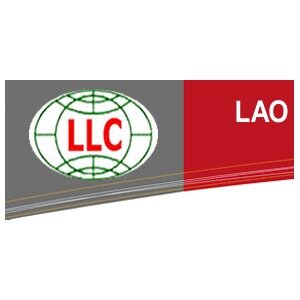Best Water Law Lawyers in Vientiane
Share your needs with us, get contacted by law firms.
Free. Takes 2 min.
List of the best lawyers in Vientiane, Laos
About Water Law in Vientiane, Laos
Water Law in Vientiane, Laos is a specialized field that regulates the use, management, and protection of water resources. As the capital and economic hub, Vientiane faces unique water challenges due to rapid urbanization, agricultural demands, and industrial activities. Water Law governs issues such as access to water, allocation between users, pollution control, licensing, and conservation. The aim is to ensure the sustainable use and fair distribution of water resources, safeguarding both public and environmental interests.
Why You May Need a Lawyer
Individuals and businesses might find themselves in need of legal advice regarding Water Law due to several situations. Common examples include disputes over water rights or access, conflicts concerning pollution or contamination, negotiating permits or licenses for water use, compliance with environmental regulations, land development that affects local waterways, or facing government enforcement actions. Additionally, property transactions near rivers, lakes, or irrigation systems often require legal clarity concerning water usage rights and responsibilities.
Local Laws Overview
Water Law in Vientiane is primarily governed by national legislation, including the Law on Water and Water Resources, which outlines the principles for managing water resources in Laos. Key aspects include:
- Strict licensing requirements for commercial and agricultural water use
- Regulations on water pollution, with penalties for contamination
- Allocation frameworks prioritizing drinking water and sustainable usage
- Provisions for community involvement and public participation in water management
- Government oversight via the Ministry of Natural Resources and Environment
- Specific rules for groundwater extraction, irrigation, and infrastructure development near bodies of water
Frequently Asked Questions
What rights do landowners have concerning water on their property?
Landowners generally have the right to use water found on or under their property, but this use is subject to national and local regulations. Large-scale or commercial use typically requires prior licensing.
Who grants water use permits in Vientiane?
The Ministry of Natural Resources and Environment, often in coordination with local government agencies, is responsible for issuing water use permits and licenses in Vientiane.
Can I drill a well to access groundwater on my property?
Drilling wells for groundwater access usually requires permission from the relevant government authority. The application process often involves environmental assessments to prevent overexploitation.
Are there restrictions on discharging wastewater?
Yes, strict regulations govern the discharge of wastewater into rivers or other bodies of water. Permits are required, and violating standards can result in penalties or legal action.
What should I do if my property is affected by water pollution?
Affected property owners can report water pollution to environmental authorities. Legal recourse may be available against parties responsible for the contamination, especially if health or property is damaged.
How does Water Law affect agricultural irrigation?
Irrigation activities are regulated to ensure sustainable use of water resources. Farmers may need to apply for permits and follow prescribed water usage limits, particularly during dry periods.
Is public access to rivers and lakes protected?
While private property rights exist, public access to major waterways is generally protected under the law, especially for essential uses such as drinking water, fishing, or navigation.
What penalties can be imposed for violating Water Law?
Penalties vary based on the severity of the violation but may include fines, suspension of permits, closure of facilities, and in some cases, criminal charges.
Can water rights be transferred or sold?
Water rights or licenses can sometimes be transferred, but such transfers are subject to approval by the relevant authorities and must comply with legal procedures to avoid adverse effects on other users or the environment.
How are water disputes resolved in Vientiane?
Water disputes can be addressed through administrative processes, local mediation, or standard court procedures, depending on the complexity and scale of the case.
Additional Resources
For further information or assistance, the following resources can be helpful:
- Ministry of Natural Resources and Environment - Water Resources Department
- Vientiane City Office for Management and Services (VCOMS)
- Laos Bar Association - directory of lawyers specialized in environmental and Water Law
- Community-based organizations working on water and environmental protection
- Environmental Protection Fund for project support and guidance
Next Steps
If you believe you need legal assistance regarding Water Law in Vientiane, start by gathering all relevant documents related to your situation, such as permits, property deeds, or notices from authorities. Make notes about key facts and your concerns. It is advisable to consult with a qualified lawyer who is familiar with local Water Law. You can seek referrals from the Laos Bar Association or contact local government agencies for recommendations. Professional legal advice is crucial to understand your rights, obligations, and the best approach for your particular case.
Lawzana helps you find the best lawyers and law firms in Vientiane through a curated and pre-screened list of qualified legal professionals. Our platform offers rankings and detailed profiles of attorneys and law firms, allowing you to compare based on practice areas, including Water Law, experience, and client feedback.
Each profile includes a description of the firm's areas of practice, client reviews, team members and partners, year of establishment, spoken languages, office locations, contact information, social media presence, and any published articles or resources. Most firms on our platform speak English and are experienced in both local and international legal matters.
Get a quote from top-rated law firms in Vientiane, Laos — quickly, securely, and without unnecessary hassle.
Disclaimer:
The information provided on this page is for general informational purposes only and does not constitute legal advice. While we strive to ensure the accuracy and relevance of the content, legal information may change over time, and interpretations of the law can vary. You should always consult with a qualified legal professional for advice specific to your situation.
We disclaim all liability for actions taken or not taken based on the content of this page. If you believe any information is incorrect or outdated, please contact us, and we will review and update it where appropriate.












